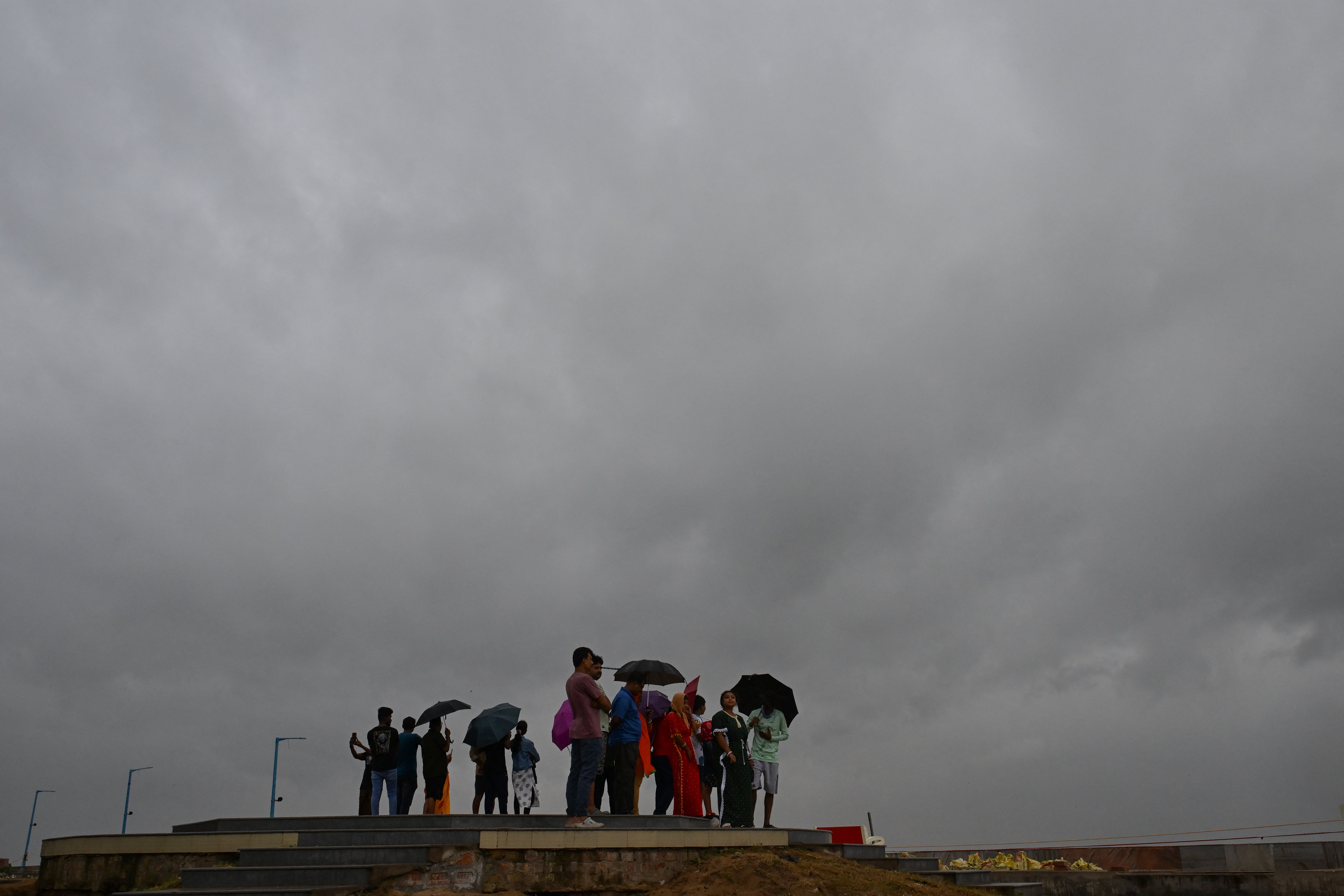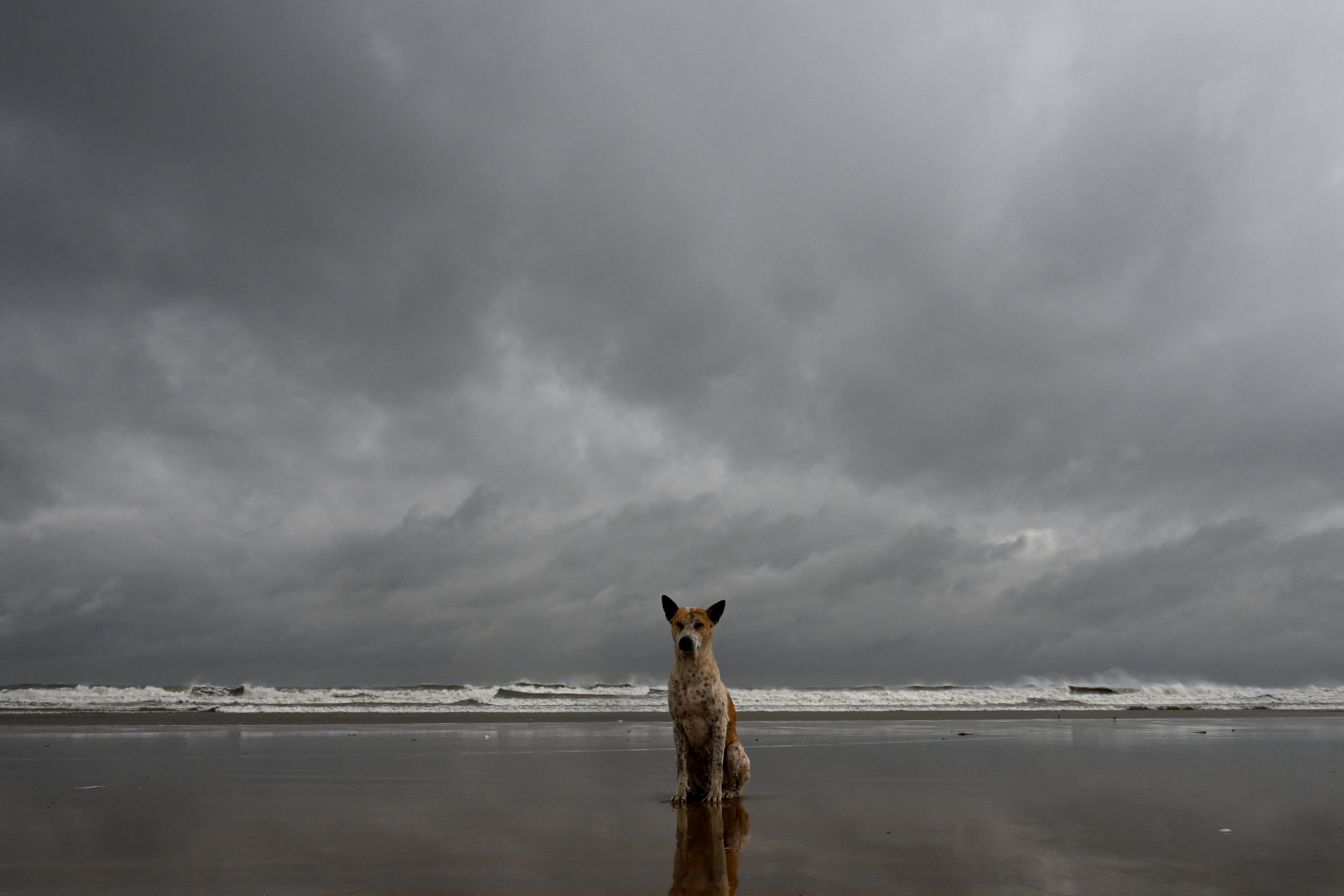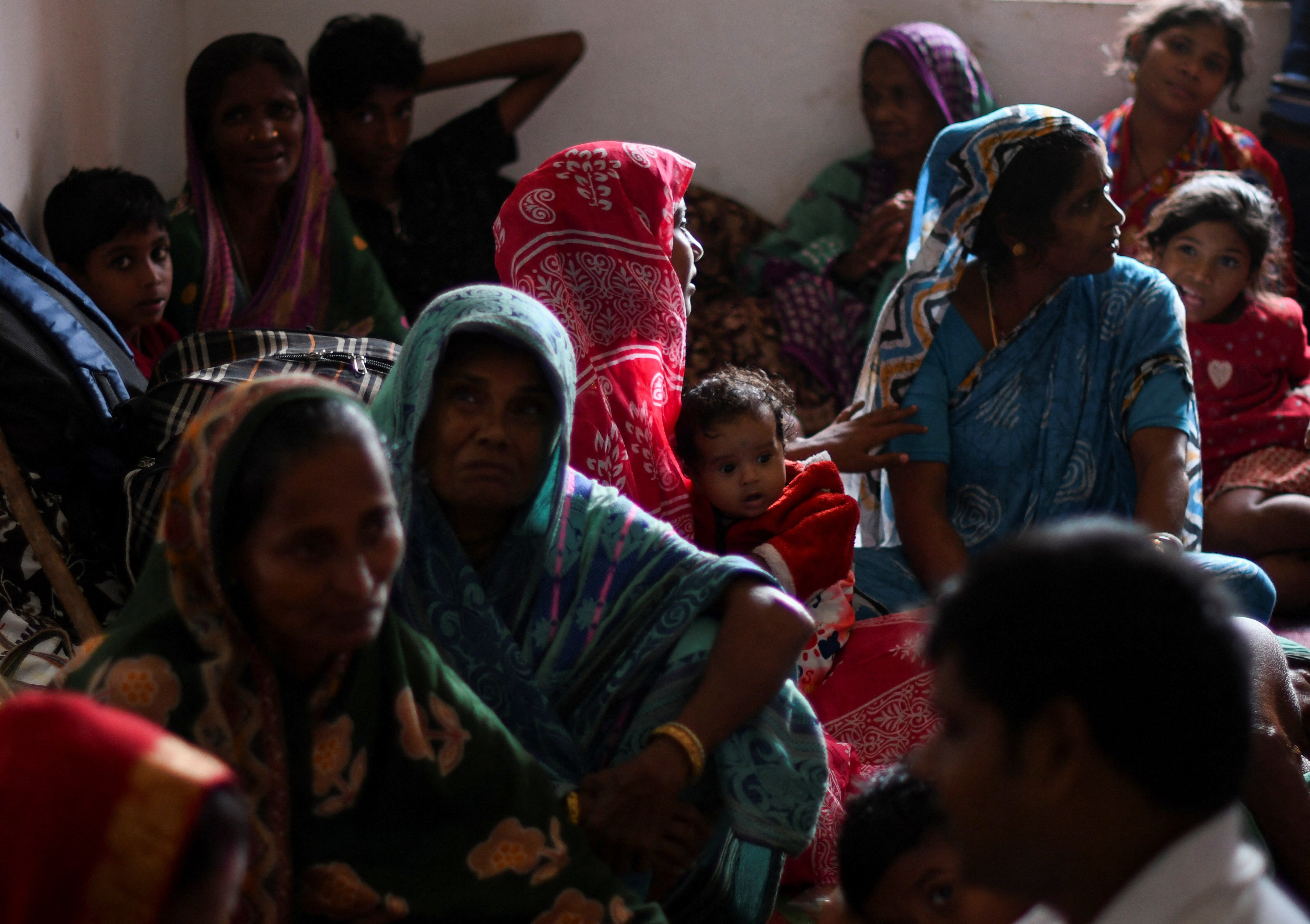Your support helps us to tell the story
This election is still a dead heat, according to most polls. In a fight with such wafer-thin margins, we need reporters on the ground talking to the people Trump and Harris are courting. Your support allows us to keep sending journalists to the story.
The Independent is trusted by 27 million Americans from across the entire political spectrum every month. Unlike many other quality news outlets, we choose not to lock you out of our reporting and analysis with paywalls. But quality journalism must still be paid for.
Help us keep bring these critical stories to light. Your support makes all the difference.
Cyclone Dana made landfall on India’s eastern coast as a severe storm, uprooting trees with torrential rains and strong winds.
The storm entered Odisha state last night with maximum sustained winds of around 68mph and gusts are expected up to 75mph, according to the Indian Meteorological Department (IMD).
As it made landfall, the storm pounded some districts in Odisha and neighbouring West Bengal state with heavy downpours as gusty winds brought down trees, local media reported.
Dana was expected to weaken into a cyclonic storm by forenoon as it moves inland.
The landfall process is expected to continue into Friday as the storm pushes further into northern Odisha, before gradually weakening over the next few hours, IMD said.
The India Meteorological Department (IMD) said that Dana is moving north-northwest at 10kmph and is centred over north coastal Odisha, about 30km north-northwest of Dhamra town.
The storm system will move deeper in the state, triggering heavy rains, IMD DG Mrutunjay Mohapatra said.
Authorities are still assessing damage from winds and storms. As of early Friday, there were no deaths nor any major damage reported.
At least 1.1 million people were evacuated by authorities on Thursday ahead of the storm.
Flights and trains were also suspended amid storm warnings. However, Kolkata and Bhubaneshwar airports have resumed their operations on Friday.

Fallen trees and debris blocked some roads in the coastal regions as cleanup operations began on Friday.
“There has been massive damage to electrical installations due to tree falling. Roads are being cleared,” Odisha higher education minister Suryabanshi Suraj, who is in charge of Bhadrak district, said, according to NDTV.
Heavy rain was forecast to bring the risk of significant flooding in low-lying areas, the IMD warned on Thursday ahead of the storm.
Authorities were on high alert for damage in three districts in Odisha, where the weather department forecast a sea surge of around 1 meter (yard) during the landfall process, which could exacerbate flooding.
“The government is fully prepared to tackle the situation. You are in safe hands,” Odisha’s chief minister Mohan Charan Majhi told people before the storm’s arrival, according to PTI news agency.
Schools and public offices were shut on Friday and over 200 trains were cancelled in anticipation of the storm’s impact.

West Bengal governor CV Ananda Bose said on Thursday that the people have braved many storms and will face Dana with confidence and patience.
“Bengal will stand together. India will stand together. We shall overcome,” he said, according to PTI news agency.

Hundreds of personnel from the National Disaster Relief Force (NDRF) were deployed in both states.
The team went door-to-door with loudspeakers making people aware of the cyclonic storm.
Bangladesh, although not in the direct path of Cyclone Dana, was also bracing for its impact, particularly in coastal districts like Khulna and Barisal. The Bangladesh Meteorological Department warned of heavy rainfall and tidal surges as the cyclone passes close to the country’s southern coast.

Parts of neighbouring Jharkhand are also expected to face heavy to very heavy rainfall from Thursday night as the storm system moved inwards.
IMD issued an orange alert for the Kolhan region in East Jharkhand, which includes the districts of West Singhbhum, Seraikela-Kharswan, and East Singhbhum.
This alert signals the possibility of heavy rainfall ranging from 115mm to 204mm within a 24-hour period, two to four times the monthly rainfall of London, which could lead to localised flooding.

India’s eastern coastline has always been vulnerable to cyclones, but the frequency and intensity of these storms are on the rise due to the climate crisis.
In the past few years, storms like Cyclone Amphan in 2020, Cyclone Yaas in 2021, and Cyclone Fani in 2019 have killed hundreds of people and caused billions of dollars in damages.
Last year was India’s deadliest cyclone season in recent years, killing 523 people and costing an estimated £2.3bn in damage.

